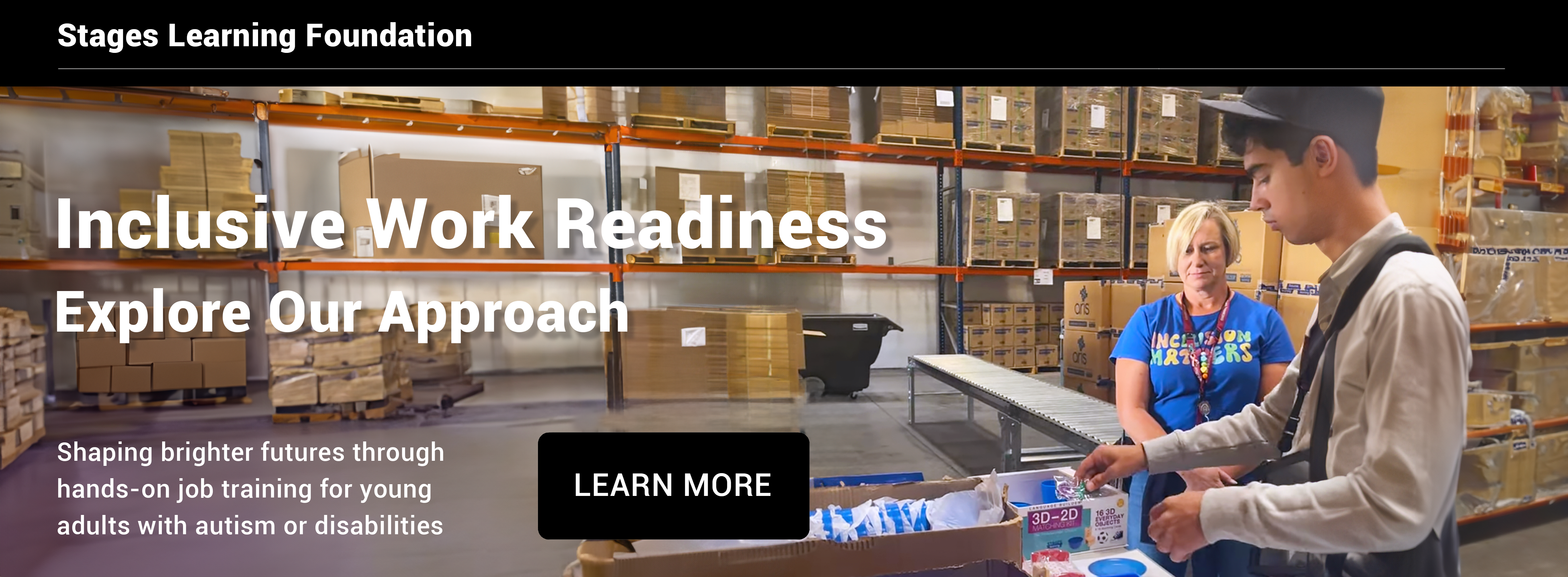Career Choices for Autistic People: First Hand Advice
Finding a Job That Matches Your Skills
Many people struggle with finding a job and establishing a career for themselves. In addition, there are often multiple applicants for only one job vacancy, which can be discouraging to any jobseeker. However, for autistic people, this search is often much more difficult. The social difficulties related to autism can cause these individuals to struggle in job interviews and in finding a work environment that is appropriate for their needs. When I look at my own experiences as someone who is autistic, finding stable employment has always been difficult for me. However, I have learned lessons during my journey that may be helpful for autistic individuals, their parents, and their teachers as they transition into the world of work.
 Download FREE Language Builder Occupations Cards!
Download FREE Language Builder Occupations Cards!
 When I was in high school and college, I spent every summer looking for a job with little success. Many of these summers were spent applying for jobs on the Internet and waiting for employers to call me, while a few were spent volunteering at various non-profits, where I was given very limited hours. By the time I graduated from college, I had never received a paycheck in my life. I became convinced that no one would find me worthy of employment, and that I would spend my days surfing the Internet and collecting disability payments from the government.
When I was in high school and college, I spent every summer looking for a job with little success. Many of these summers were spent applying for jobs on the Internet and waiting for employers to call me, while a few were spent volunteering at various non-profits, where I was given very limited hours. By the time I graduated from college, I had never received a paycheck in my life. I became convinced that no one would find me worthy of employment, and that I would spend my days surfing the Internet and collecting disability payments from the government.
After I received my bachelor’s degree, I entered graduate school in hopes of becoming a licensed special educator. The basis of this decision was that being autistic would supposedly provide me with a unique perspective that would allow me to help students with special needs. However, I soon realized that my reasoning was misguided. My struggles began when I entered a field placement at a local middle school, where I would be assisting an 8th-grade special education teacher with her students. The social deficits and significant anxiety that resulted from being autistic proved to be impediments to the tasks that I was assigned. When I was asked to teach lessons, I stumbled through the material in a scripted and nervous manner rather than a spontaneous and friendly one. When I was asked to provide one-on-one support to particular students, I often froze and withdrew as I struggled to explain the academic material in a way that was understandable to a middle schooler. On the last day, my supervising teacher informed me that the students thought that I was scared of them, and my graduate school liaison advised me to find a new career path. I was upset at this turn of events, but not surprised. This incident resulted in an epiphany that would shape my vocational future.

After processing the situation with my family and close friends, I realized that what I liked about working in special education did not involve working in classrooms. Instead, I liked the actual process of learning about different methods of special education. In my spare time, I watched documentaries about individuals with special needs, read hearing decisions in cases involving special education disputes, and devoured research articles about autism. Therefore, I decided to focus my career on the research that is involved in special education, and this is a path that I have been moderately successful in. To date, I have completed one internship that focused on different aspects of disability research. I am currently working on a second internship in the same field, and I am hoping that this will lead to permanent employment.

I have learned through my experiences that those who are looking for work need to understand their strengths and limitations and make their career choices accordingly. For autistic people, this can be difficult, as our disability may cause our strengths and weaknesses to be different from those that neurotypical people may have. However, teachers and parents need to recognize that autistic people have as many talents and gifts as anyone else has, and that it is important to help these individuals find their vocational niches while still keeping their unique needs in mind. This can happen in a variety of ways, and I would like to take some time to discuss my ideas about how autistic people can be supported in this manner.
How to Help Autistic Individuals Find Their Vocational Niche
- Encourage your autistic children and students to take the time to think about potential career paths, and to not “jump into” a potentially inappropriate choice. My decision to study special education was the result of my personal experiences and my enjoyment of reading about those with disabilities, and not due to my actual strengths.
- Allow autistic individuals to pursue a career path that they feel is interesting and appropriate for their needs, and step back as they experiment with it. They may find their perfect niche or they may realize that another career path may be best, and these conclusions will mean more if they are drawn at least semi-independently.
- Do not discourage autistic individuals from choosing a particular career path due to the expectations of others. For example, an autistic individual may find the structured routine and consistent expectations of a restaurant job to be comforting and enjoyable, even though many people do not consider these jobs to be permanent career choices.
- Help autistic individuals determine the types of work environments that they will feel most comfortable in. Autistic people are most successful when they do not feel a significant amount of anxiety, whether this is the result of social expectations or work requirements.
In conclusion, the world of work can be intimidating for anyone who is transitioning into adulthood. However, with the appropriate support and the help of family and friends, success at work is possible for autistic individuals. Therefore, employers would be wise to hire people who have this diagnosis, as they have a variety of skills and talents that more than compensate for any shortcomings that we may have.

Nathan Hughes
Nathan Hughes is a recent graduate of Lesley University, where he received his Master’s Degree in Education of Students with Moderate Disabilities in Grades 5-12. He is also a graduate of Salem State University, where he received a Bachelor’s Degree in English. As someone who is on the autism spectrum, Nathan’s goal is to work in educational research and to contribute to a better understanding of autism.







